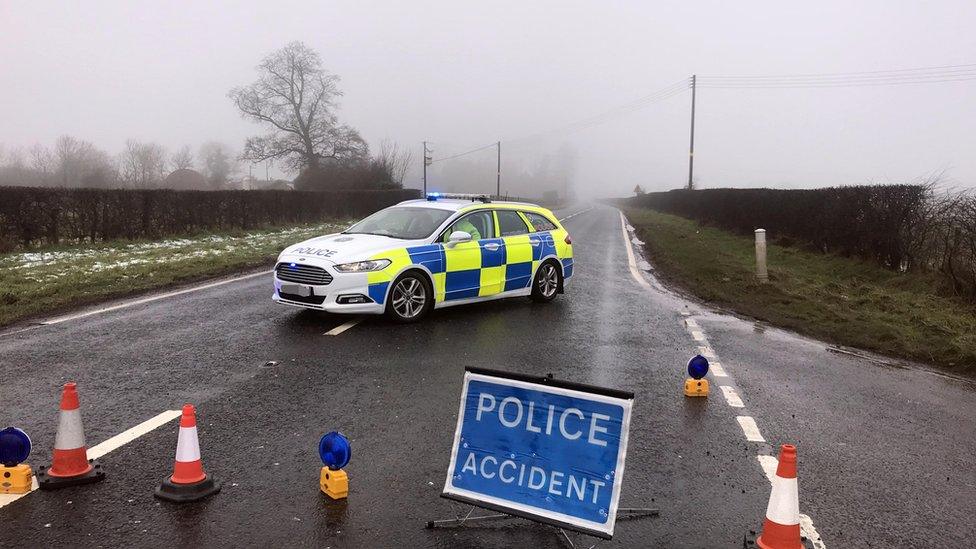Police breached duty of care to teen killed in 2018

Shannon McQuillan, 19, died after being struck by a van in 2018
- Published
There were multiple breaches in the duty of care offered by police officers to a teenager who was killed in County Antrim in 2018, an investigation has found.
Shannon McQuillan, 19, died and Owen McFerran, 21, sustained life-changing injuries after they were hit by a van near Toomebridge at about 03:40 GMT on 20 January
It happened after three police officers, a Northern Ireland Ambulance Service paramedic and a trainee emergency technician left them alone on the Moneynick Road.
The Police Ombudsman said officers failed to safeguard the couple's welfare, complete basic checks in relation to them and recognise the risk of leaving them alone together beside a road.
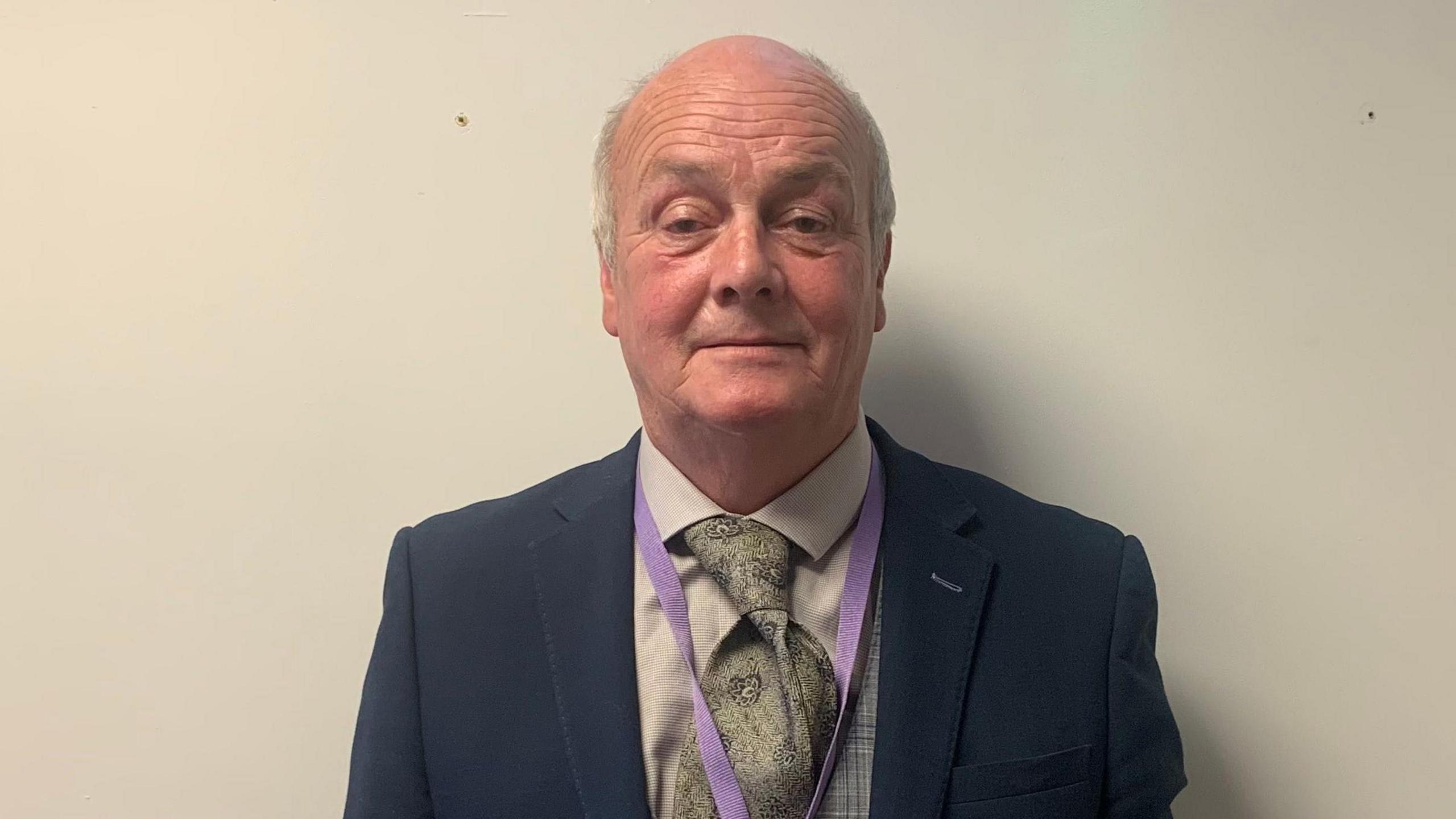
Shannon McQuillan's father, Paul McQuillan, said the family had "been through turmoil"
Speaking at a press conference, Ms McQuillan's father, Paul McQuillan said the family had "been through turmoil for seven and a half years".
"I'm really disgusted and ashamed at the behaviour of the Police Service of Northern Ireland on the night in question," he said.
"How they could leave a nineteen-year-old girl who was drunk, who had a head injury, who was dressed for a nightclub at half three in the morning at a layby?"
On BBC Radio Ulster's Evening Extra, he described the way his daughter was treated as "nearly inhuman".
"If me or anybody else had treated a dog in the way my daughter was treated, we would have probably done time for cruelty," he said.
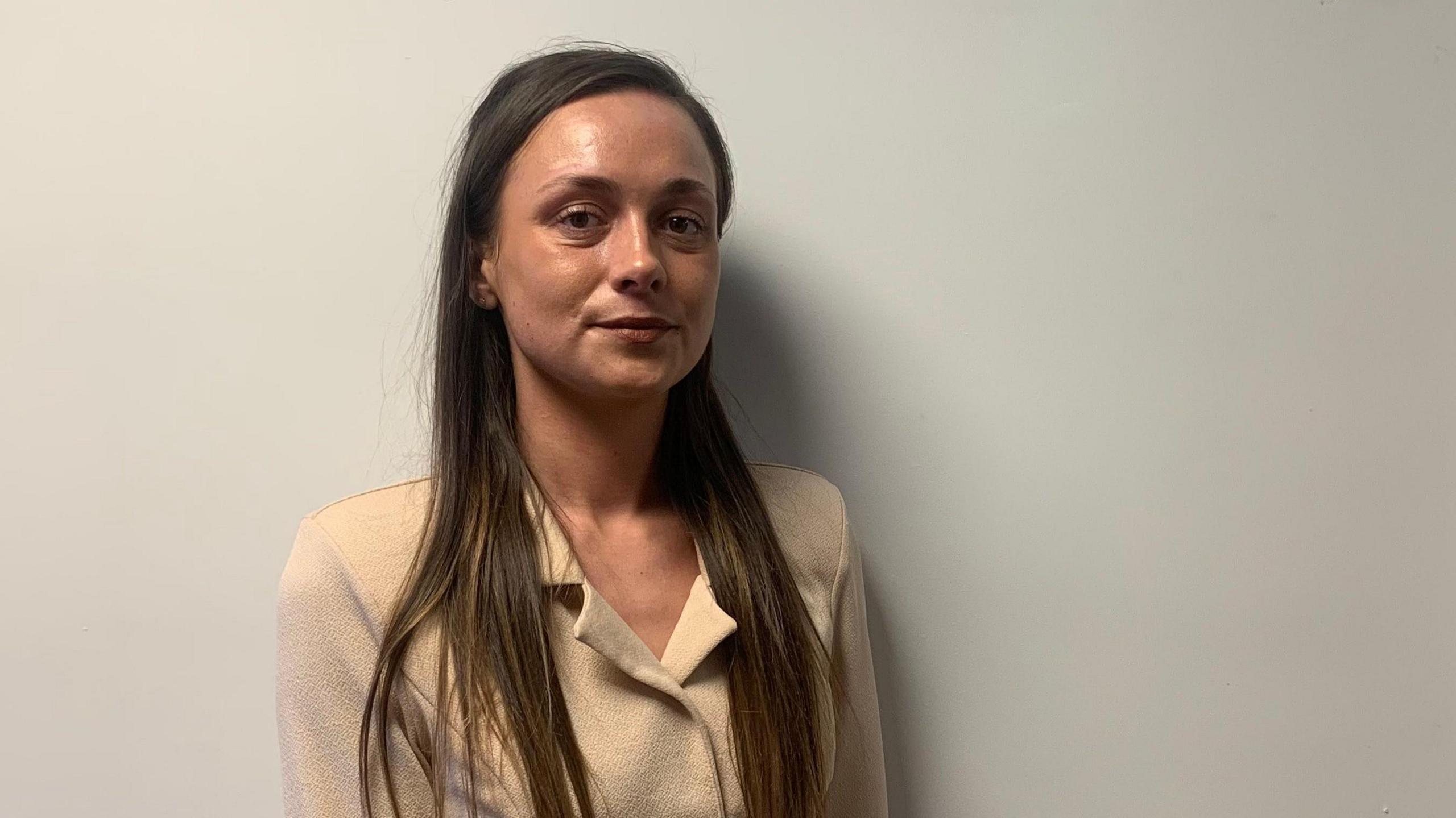
Shannon's sister Charlene McQuillan said her sister loved rock music and animals
Shannon's sister Charlene said she was the "most loving sister and best friend", and "most humble girl" who "took everything in her stride".
She said the emergency services had failed to do their jobs and she believed Shannon would be here today if she had been treated effectively.
The Police Service of Northern Ireland (PSNI) said it accepted that more could and should have been done to prevent the circumstances before Ms McQuillan's death and Mr McFerran's injuries.
Assistant Chief Constable Anthony McNally said: "For that we are truly sorry.
"We will now take further time to carefully consider the ombudsman's report and assure ourselves that lessons have been learnt particularly around the identification of vulnerability, risk assessment and adherence to service policy."
The interim chief executive of the Northern Ireland Ambulance Service (NIAS), Maxine Paterson, said the report raised "serious and sobering reflections on inter-agency communication and the collective response to vulnerable individuals in crisis".
She said the NIAS accepted the recommendations on further improving joint working arrangements with the police in such high-risk situations.
She added that the service was committed "to ensuring the tragic circumstances of this case lead to lasting change".
Middle of the road
The ombudsman started an investigation into the conduct of the police officers who were in contact with the couple prior to the fatal accident a few days after the incident.
The ambulance service and PSNI first encountered them at 02:00 GMT at a car park in Magherafelt, where Ms McQuillan was unconscious after falling a number of times.
After police called Ms McQuillan's mother to tell her she was being taken to hospital, they left the couple in the care of two ambulance staff.
The same officers were called back to the car park by NIAS staff after Ms McQuillan's behaviour become erratic.
Officers then agreed to follow the ambulance to hospital.
But shortly before 03:00 the ambulance pulled into a layby on the Moneynick Road and police assistance was called for again due to concerns about Ms McQuillan's behaviour.
Two different police officers attended and a senior officer arrived minutes later.
After a discussion between the NIAS and PSNI, the couple got out of the ambulance and were left alone at a bus shelter on the road.
A short time later the PSNI received three calls about two people walking in the middle of the Moneynick Road, and then a motorist told police he had collided with two people.
Ms McQuillan and Mr McFerran both had high levels of alcohol in their blood at the time of the accident.
Investigators highlighted that as significant information when it came to how officers assessed the vulnerability and risk of the couple, and the decisions they made.
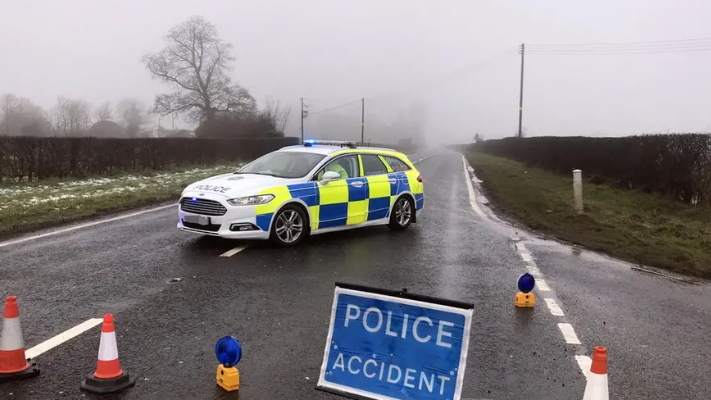
The couple were hit by a van on the Moneynick Road in 2018
The Police Ombudsman described communication between the police officers in attendance at the Moneynick Road and the NIAS staff as "wholly inadequate".
Following an investigation into the conduct of NIAS staff, a police file was submitted to the Public Prosecution Service but it decided that no criminal charges should be brought against any of the paramedics at the scene.
However, proceedings found the conduct of two of the three officers who had attended amounted to gross misconduct.
One officer was dismissed from the PSNI, the other was given a written warning.
The dismissal was set aside on appeal, but the officer died before a new hearing could be held.
A third officer was disciplined for failing to submit and retain her own original signed statement about the incident.
Another officer who amended the statement and failed to ensure the original was kept, was given advice to improve her conduct.
'Extremely vulnerable'
The ombudsman has recommended that a new policy is put in place between the PSNI and NIAS to deal with people who are intoxicated and refuse medical treatment.
A programme called The Right Care, Right Person Programme is currently being developed by the PSNI.
The Police Ombudsman's chief executive Hugh Hume said: "More should have been done in this case to protect the extremely vulnerable young woman and man from harm.
"Safeguarding vulnerable people in an operational environment is an important and frequent role for first responders.
"Ineffective or ill-informed decisions can, as in this case, have dreadful and far-reaching consequences.
"It is therefore essential that police officers and all front-line partners work together smoothly and efficiently to minimise the risk to those whose judgement and health appears impaired."
- Published21 January 2018
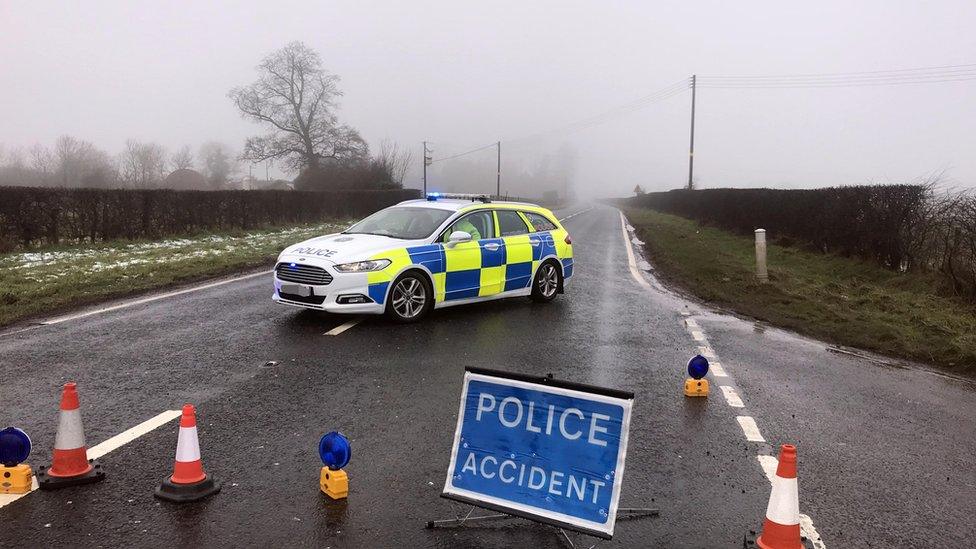
- Published20 January 2018
